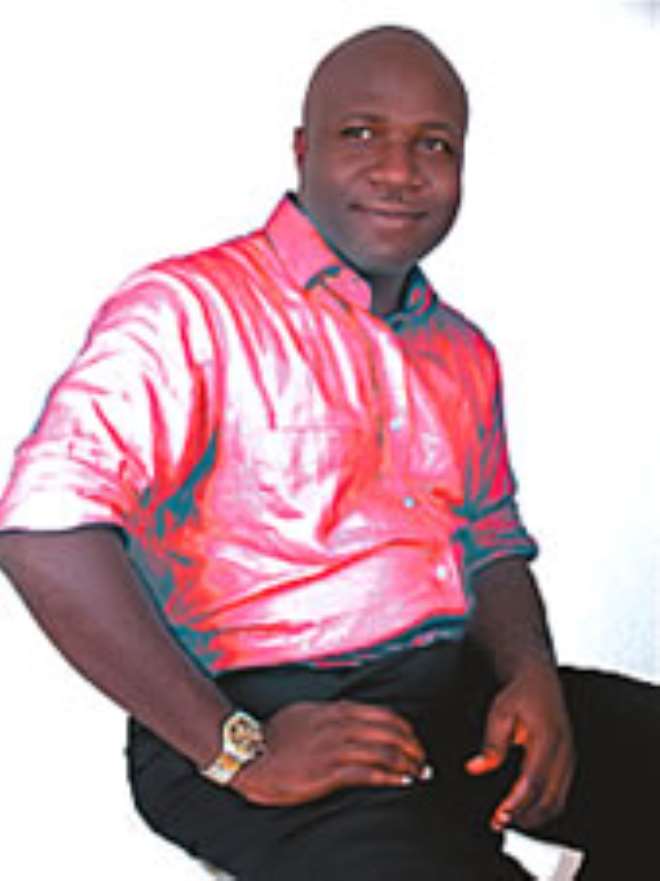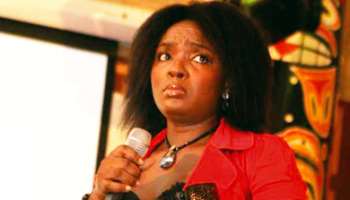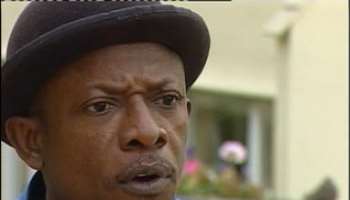Mediocrity Has Taken Over Movie Industry - Mellamby Ileogben
Suave and simple is Mellamby Ileogben, a notable film maker, radio and TV commercials director, who has made quite an impression in the industry. In this interview with Sandra-Izuu Okafor, he speaks on how the Nigerian film industry can be used as a tool for positive transformation in the country.
Briefly tell us about yourself?
My name is Mellamby Isikpoje Ileogben. I am from Uzeba in Edo State. I am a film director/producer, so I can easily say that I am a film maker. I graduated from the University of Benin where I got my first degree in Bio-chemistry and further on went into film making and have been doing this for close to 15 years. I am married with two kids.
What was growing up like?
Growing up for me was an experience. I wasn't born into a very wealthy family, so I could say my father was an average civil servant who had seven children, among whom I am the third and what I would say was that the man tried because he was able to send all of us to school –at least the much he could before he left us for the world beyond. I had few friends because I grew up under a very restricted environment. My father was a very strict administrator even at home. He was a disciplinarian, who was once a teacher before he got into office work, so we had to follow the rules and my mum was always at the receiving side in the sense that each time she saw her children being flogged, she would scream and cry. Those were fond memories, so today I look back and say, yes, the man did a good job because truly speaking, we were very stubborn. We were three guys and four girls, so the man just had to be strict.
Being a graduate of Bio-chemistry, what led you into film making?
It is all about one's passion, what one wants to become in life. While growing up, I had flair for art and as a secondary school student, I was a singer. I can remember then that I and about three of my friends formed a group called the Sensationals which never saw the light of the day. As a member of the Sensationals, I was the lead vocalist and looked up to a future where I would have my own album, be known in the society and see music as a career that would take me around the globe but the irony of it all was I was not even bold enough to let my father know about this and because I kept it all to myself, he probably never knew I could sing so well.
Apart from that, I was a fantastic fine artist, though I do not know how much I can do now but I am sure if I put in a little effort I would be able to make out a good picture of anybody who sits before me. Parents being what they are, they always want what they want to be. My father insisted that I must be a doctor, so I found myself choosing subjects that are related to the requirements to study Medicine and that got me into the sciences. Having satisfied my father as a graduate of science, I finally set out to pursue the love of my life with arts and which is exactly what I am doing now.
How do you get your inspiration when directing/producing a film?
My inspiration firstly comes from God and the confidence I have in myself. For me, I do not believe in impossibilities and if anything looks like an impossibility, I quickly switch and turn it around to become a challenge and for me, challenges are meant to be overcome. I look at whatever script or whatever idea that is before me and I begin to breathe life into it. When on location, I'm inspired by everything around me, from the challenges on location, the artistes, and even the crew I'm working with inspire(s) me. I look at what I want to achieve and I begin to see the end of the project I'm doing and the moment I'm able to get the proper picture of the end of what I'm about to start, I get highly inspired and have all the energy to work.
Tell us about the jobs you have done?
I have done quite a lot, though for a while I took a break off Nollywood films due to the seemingly instability of the industry and concentrated on television commercials. But before the break, I was functioning mostly as director for special effects which won me some awards in the past. I have done documentaries for MTN on HIV on their MTN pack, as partners against AIDS in the community. I have done documentaries for SPG. I have also done documentaries for notable members of the society. But the area where I function very often is television commercials.
I have done quite a number of commercials for First Bank, Globacom, Golden Morn, Delta Soap, Omo, Tom-Tom sweets, Coca-Cola, Maltina, Jago milk, Dunlop tyres, Bacchus tonic wine and many others. This does not mean I ran away totally from film making because I still have a very strong interest in it. I have done a few films in recent times –some of which actually got nominated for screening in some film festivals outside Nigeria. One of them is the Juju Doctor which is a short film of about 15 minutes. It was nominated to be screened at the Durban film festival in South Africa. A lot of entries actually got in and for mine to be selected, it means that it was a good effort.
What is your filmic style that makes your work different?
I will like to describe my filmic style as very fluidal, very natural and very dynamic. I do not have a particular style to say. There is no way you can see two of my jobs and say they are exactly from one person except you were present while they were being produced. I like to leave my mind, my brain and my thoughts open to ideas and suggestions, because for me there are no boundaries or limit to my imagination. I like to look at things from the other way round. I like to think of it from the end to the beginning and vice-versa, so there is no particular style for me. I look at a particular job and I know the job is unique, for me every job is unique, even if the stories are similar I try to see the difference in them and approach them with such perspectives.
Out of all the jobs you have done so far, which was the most challenging?
I remember a particular commercial I shot for Lulu, a company that has folded up right now. The story was built around a football game which was actually shot at the National Stadium, Surulere Lagos, where I had to put together a crowd of about 300 people. The huge challenge was we had to finish the job in one day because it would have been quite cumbersome and terribly expensive to continue the next day. Having to co-ordinate everybody was a very huge challenge, the crew which was also very large and the different sections of the people –the spectators, the supporters club, who were chanting and dancing and the footballers who were actually playing because we had to play on a part of the field. Another challenge for me was that I had to make it look like a real football match and make the few players look as if it was full game. I'm happy it came out quite nice.
What is your assessment of the entertainment industry and where do you see it going in the next few years?
First, let us give honour to whom honour is due because out of nothing the Nigerian film started and for the fact it was started at all means that it was a good initiative and today we know where it is because there is a lot of awareness. I know the sky only can be the limit for the Nigerian film industry.
But I also know there was a lot of mediocrity whereby different people dabbled into the act because they felt it was just a money-making industry without actually looking at the necessary details to make the industry grow strong. So, what was the result? The result was an industry that looked like it was growing but actually it was going backwards, which is to say, the industry was declining and it got to a point where it just could not move forward.
Also, for those who said they were the core practitioners in the industry, there wasn't much progress for them; but the guys who tried to say they were no longer following the rules or the style of the industry excelled. Now, my assessment is, the industry has a chance to survive, it has a future and the industry more than ever before is getting more appreciation from the government and notable organisations. Also, there is a check right now which has made it so clear that if you do not know what you are doing, then you have no business to be in the industry. So, the result that I see is a new industry that will emerge with the proper rules, the proper style of functioning that will match with any standard around the world.
Latest News
-
 "If You're For Me, I Am For You" - Cubana Chief P
"If You're For Me, I Am For You" - Cubana Chief P -
 "3 Days To Go" - Femi Adebayo Urges Fans To Get S
"3 Days To Go" - Femi Adebayo Urges Fans To Get S -
 "Stop Asking Me Questions About Speed Darlington"
"Stop Asking Me Questions About Speed Darlington" -
 "Benue Is The Most Underdeveloped State I've Ever
"Benue Is The Most Underdeveloped State I've Ever -
 Stan Alieke Urges Young Professionals To Take Lin
Stan Alieke Urges Young Professionals To Take Lin -
 Chizzy Alichi Teases Fans With Baby Reveal, Promot
Chizzy Alichi Teases Fans With Baby Reveal, Promot -
 "I'm Not Wearing Makeup From July 4th Till Decemb
"I'm Not Wearing Makeup From July 4th Till Decemb -
 "Stop The Challenge Of Mocking Kids With Down Syn
"Stop The Challenge Of Mocking Kids With Down Syn -
 Regina Daniels Celebrates Sons As They Mark Birthd
Regina Daniels Celebrates Sons As They Mark Birthd -
 Speed Darlington Threatens To Sue NAPTIP For Defam
Speed Darlington Threatens To Sue NAPTIP For Defam














